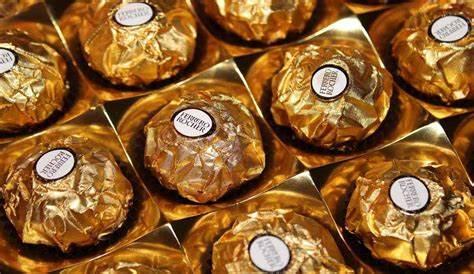MILAN, March 8 (Class Editori) — With a turnover of 600 million euros last year (Euromonitor data) and a workforce of 1,300 employees at the Hangzhou plant, Ferrero is the most important Italian company in China in the food sector, leader in the gifting chocolate segment and second only to the American company Mars in the broader confectionery market.
Just over six years have passed since September 2015, when the Group planned to build a production unit in China, not far from the slopes of Hangzhou with its lake and natural liaison with Italy via Marco Polo, thanks to an investment of 300 million euros, a figure that made headlines at the time.
However, Founder Michele Ferrero, who passed away, saw things through when, over twenty years ago, he decided to open a sales office in Hong Kong, considered an Asian hub destined mainly for the Chinese market, despite the fact that China was one of the countries with the lowest per capita consumption of chocolate.
Then, in 2007, Ferrero Trading Shanghai was established in Shanghai, also as a result of an innovative legislation that finally allowed foreign companies to free themselves from a Chinese partner for commercial distribution. Over the years, the organization has been equipped with four regional offices (Shanghai, Beijing, Guangzhou and Chengdu) and four warehouses to supply each area with its products.
Today, the Hangzhou plant, through its production lines, churns out Rocher, Kinder bars and Eggs daily. The remaining product range (Raffaello, Kinder Bueno and Nutella) is generally imported from Europe.
"Our company philosophy is, even in China, anchored in values of the past and at the same time projected towards the future with a long-term vision where investments and innovation create the basis for guaranteeing the pinnacle of product quality," General Manager Mauro De Felip, who manages and controls this sweetness-producing machine, explained.
In China for almost 10 years but 25 in total in Ferrero, De Felip left Europe in 2013 for Hong Kong as General Manager North Asia and arrived in Shanghai in 2016.
One of Ferrero's qualitative peculiarities is freshness, to which fragrance must be added. This explains the relatively short shelf life of its production range (6-12 months) and the persistence of freshness is measured in the various points of sale by professional figures called "freshness measurers".
This is the reason why the investment in China was decided and now, it is enough to get close to the Rocher glitter pyramids in supermarkets to smell the scent released from the packages.
The other reason is to gain a leadership position in the aggregate market of "dessert before a meal", a definition inspiring a sweet image, once again, by covering market shares in adjacent categories such as cookies, candies and ice cream, relying on the strength of now consolidated brands in China, such as Ferrero Rocher and Kinder.
However, if today Ferrero can boast a global success, including China, being appreciated by consumers for its products whose target market is the medium-high class, the historical role of the Ferrero Brioss in Italy for the boom generation — being born in 1961, a soft slice of sponge cake with an apricot or cherry jam filling — should not be forgotten.
A new world was beginning, in which mom's or grandma's cake was replaced by what would later be called snacks. All this combined with the points collection "One day with your favourite soccer player". In the same year, Ferrero launched Fiesta, a sponge cake soaked in curacao and covered with a thin layer of chocolate, which was a great commercial success linked to the Jo Condor’s cartoons. Finally in 1964 the spreadable cream Nutella was launched with the slogan: "What would the world be without Nutella?".
This successful strategy is now part of a management course in collaboration with Bocconi University, about being "Ferrerian" as a clear synthesis of family values lasting three generations with deep roots in the Piedmontese culture of doing.
The modus operandi of another great man coming from the Langhe, Angelo Gaja — who passed away a few years ago and left a great legacy in the world of wine — is well suited in this regard: "To be successful, there are four steps to take: doing, knowing how to do, knowing how to make others do and letting others know".
(Source:Class Editori)
Notice: No person, organization and/or company shall disseminate or broadcast the above article on Xinhua Silk Road website without prior permission by Xinhua Silk Road.




 A single purchase
A single purchase









